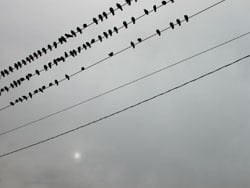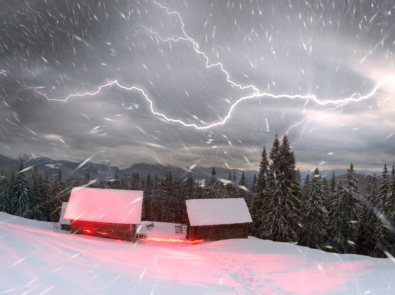
Is this saying about March true? We take a closer look at this bit of weather folklore.
Read MoreBefore there were weather apps for your smartphone, Doppler radar, or the National Weather Service, our ancestors were busy observing their natural surroundings and noticed that animal behavior, clouds, and other elements of nature gave clues about the weather to come.
The result: weather folklore — sayings, rhymes and anecdotes that were passed down from generation to generation. Weather lore is one of our favorite subjects here at Farmers’ Almanac, and It’s been a reader favorite since our very first edition in 1818.
Below is a collection from our archives.

Is this saying about March true? We take a closer look at this bit of weather folklore.
Read More
Roosters crowing at night, dogs eating grass, pigs gathering straw. Can these things really predict the weather?
Read More
Have you ever seen a ghostly ring around the Moon? We explain what it's called and what causes it.
Read More
What does fog in August have to do with snow? Check out some fascinating weather lore that is not only whimsical but also wise.
Read More
Can a cricket really tell you the temperature outside? Do fish know if it's going to be a cold winter? Check out this list of creatures that have a few things to tell us about the weather!
Read More
If June is wet, will September be dry? Check out some of these weather lore sayings for the month of June. How many of these do you know?
Read More
Spring is a crazy time for weather, especially April! Check out some of these April weather lore sayings. How many of these do you know?
Read More
Thunder and lightning during a snowstorm? Thundersnow is a real thing, and may be coming to your neighborhood soon!
Read More
Learn about this weather pattern and what must be in place to make it officially an "Indian Summer."
Read More
Natural Signs of a Bad Winter
Read More